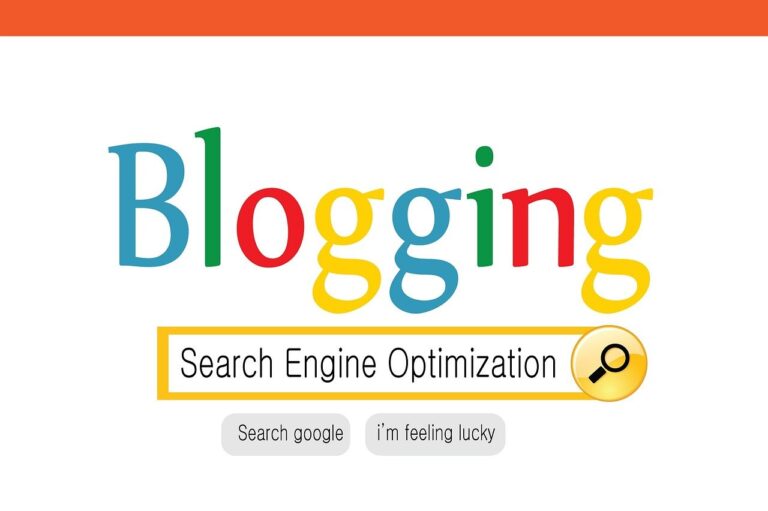Podcasting has emerged as a powerful tool for holistic practitioners to share their expertise and connect with audiences. Practitioners can use podcasts to establish authority, build trust, and reach a wider audience interested in holistic health approaches. This medium offers a unique opportunity to engage listeners through in-depth conversations and share valuable insights that can positively impact their well-being.

For holistic health professionals, podcasting provides a platform to showcase authenticity and relatability. You can use this format to explain complex concepts, answer common questions, and offer practical advice in a way that resonates with your target audience.
The intimate nature of audio content allows you to form a deeper connection with listeners, potentially turning them into loyal followers and clients.
Starting a podcast or appearing as a guest on established shows can significantly enhance your professional profile. You’ll have the chance to demonstrate your knowledge and expertise while staying current with industry trends. This exposure can lead to new opportunities, collaborations, and growth for your holistic practice.
The Benefits Of Podcasting For Holistic Practitioners

Podcasting offers holistic practitioners a powerful platform to share their expertise, connect with audiences, and expand their practice. This medium allows for intimate, in-depth conversations that can showcase your knowledge and build trust with potential clients.
Building A Loyal Audience
Podcasts create a personal connection with listeners, fostering loyalty and trust. Your voice becomes familiar, making you more approachable and relatable. Regular episodes keep you top-of-mind for your audience.
Podcasting can help you reach a wider audience and establish your authority in the holistic health field. You can address common questions and concerns, providing value to listeners even before they become clients.
By consistently delivering quality content, you’ll build a community around your practice. This loyal following can lead to word-of-mouth referrals and a steady stream of new clients.
Sharing Expertise And Knowledge
Podcasts allow you to dive deep into topics relevant to your holistic practice. You can explain complex concepts, share case studies, and offer practical advice to your listeners.
This platform gives you the freedom to explore subjects in-depth, showcasing your expertise and unique approach to holistic healing. You can invite guests to discuss various aspects of wellness, further enhancing the value you provide to your audience.
By consistently sharing your knowledge, you position yourself as a thought leader in your field. This can lead to opportunities for speaking engagements, collaborations, and media appearances.
Growing Your Practice
A podcast can be a powerful marketing tool for your holistic practice. Each episode serves as a sample of your services, allowing potential clients to get to know you before booking an appointment.
You can use your podcast to promote upcoming events, workshops, or new services. This direct line of communication with your audience can lead to increased bookings and a more engaged client base.
Podcasting can transform lives by sharing your unique perspective and expertise in holistic healing. It allows you to create a profound connection with listeners seeking guidance on their wellness journey.
Practical Steps To Starting A Podcast
Starting a podcast requires careful planning and the right tools. You’ll need to select appropriate equipment, choose a hosting platform, and plan your content strategically.
Choosing The Right Equipment
To create a professional-sounding podcast, you’ll need quality equipment. A good USB microphone is essential for clear audio. The Blue Yeti is a popular choice for beginners.
Consider investing in headphones to monitor your audio while recording. A pop filter can help reduce plosive sounds. If you plan to record with guests, you may need additional microphones or an audio interface.
For editing, you’ll need software. Audacity is a free option that works well for beginners. More advanced users might prefer paid options like Adobe Audition or Logic Pro.
Selecting A Hosting Platform
Your podcast needs a home on the internet. A hosting platform stores your audio files and generates an RSS feed for distribution. Popular options include:
- Libsyn
- Buzzsprout
- Podbean
- Anchor
Each platform offers different features and pricing plans. Consider factors like storage space, analytics, and ease of use when making your choice.
Many platforms also offer distribution to major podcast directories like Apple Podcasts and Spotify. This can save you time and effort in promoting your show.
Planning Your Podcast Episodes
Successful podcasts require more than just hitting record. Start by defining your podcast’s focus and target audience. Create an outline for each episode to keep your content structured and engaging.
Consider your episode format. Will you have guests? Solo episodes? A co-host? Your format can vary, but consistency helps build listener expectations.
Plan your recording schedule. Regular releases help build an audience. Batch recording multiple episodes can help you maintain a consistent publishing schedule.
Prepare questions or talking points for each episode. This helps prevent awkward silences and keeps your content focused. Remember to leave room for spontaneity and natural conversation.
Choosing Topics For Your Podcast

Selecting the right topics for your podcast is crucial for engaging your audience and establishing your authority as a holistic practitioner. The following subsections explore key strategies to help you choose compelling and relevant content.
Identifying Your Niche
Start by assessing your interests and areas of expertise. Consider the unique aspects of your holistic practice that set you apart from others. Think about the specific problems your clients often face and how your knowledge can address them.
Create a list of potential topics that align with your expertise and your audience’s needs. For example:
- Natural remedies for common ailments
- Holistic approaches to stress management
- Integrating traditional and modern healing practices
Narrow down your list by focusing on topics that you’re passionate about and can discuss in-depth. This enthusiasm will shine through in your podcast, making it more engaging for listeners.
Addressing Common Questions And Concerns
Your podcast can serve as a valuable resource by answering questions your audience frequently asks. Visit online forums, social media groups, and your own client interactions to gather common concerns and queries.
Create episodes that directly address these issues. For instance:
- “5 Myths About Acupuncture Debunked”
- “How to Incorporate Mindfulness into Your Daily Routine”
- “Understanding the Role of Nutrition in Holistic Health”
By tackling these topics, you’ll provide immediate value to your listeners and position yourself as a go-to source for reliable information in your field.
Featuring Guest Experts
Inviting established experts or industry leaders can significantly enhance your podcast’s authority and appeal. Collaborate with colleagues, mentors, or other professionals in complementary fields to offer diverse perspectives on holistic health topics.
When selecting guests, consider:
- Their expertise and how it complements your own
- The relevance of their knowledge to your audience
- Their ability to communicate complex ideas clearly
Prepare thoughtful questions that allow your guests to share unique insights. This approach not only provides valuable content for your listeners but also helps you build relationships within your professional community.
Effectively Communicating Holistic Health Concepts
Clear communication is essential for holistic practitioners to share their knowledge effectively through podcasting. By simplifying complex topics, using engaging storytelling techniques, and incorporating case studies and testimonials, you can make your content more accessible and impactful for your audience.
Simplifying Complex Topics
When discussing holistic health concepts on your podcast, break down complex ideas into digestible chunks. Use analogies and metaphors to relate unfamiliar concepts to everyday experiences.
Avoid jargon and technical terms whenever possible. If you must use specialized language, provide clear definitions and explanations.
Create visual aids or infographics to accompany your audio content. These can be shared on your podcast’s website or social media platforms to reinforce key points.
Consider using a “step-by-step” approach when explaining processes or treatments. This helps listeners follow along more easily and understand the progression of ideas.
Engaging Storytelling Techniques
Craft engaging content by incorporating storytelling techniques into your podcast episodes. Begin with a compelling hook to capture your audience’s attention from the start.
Use personal anecdotes or client experiences (with permission) to illustrate key concepts. This helps listeners relate to the information on a more personal level.
Create a narrative arc within each episode, guiding listeners through a journey of discovery and understanding. This keeps them engaged throughout the entire podcast.
Incorporate sensory details and descriptive language to paint vivid pictures in your listeners’ minds. This can help make abstract concepts more tangible and memorable.
Using Case Studies And Testimonials
Include real-life case studies in your podcast to demonstrate the practical applications of holistic health concepts. These examples provide concrete evidence of the effectiveness of your methods.
Present client testimonials to showcase successful outcomes. This builds credibility and helps potential clients understand the benefits of your approach.
When discussing case studies, maintain client confidentiality by changing names and identifying details. Always obtain permission before sharing personal stories.
Use a mix of short and long-term case studies to illustrate both immediate results and lasting benefits of holistic health practices.
Encourage listeners to share their own experiences related to the topics you discuss. This fosters community engagement and provides additional real-world examples.
Promoting Your Podcast
Effective podcast promotion expands your reach and attracts new listeners. Strategic use of social media, collaborations, and email marketing can significantly boost your podcast’s visibility and audience growth.
Leveraging Social Media
Social media platforms offer powerful tools to promote your podcast. Create dedicated accounts for your show on major platforms like Instagram, Twitter, and Facebook. Share engaging snippets, quotes, or short video clips from each episode to pique interest.
Use relevant hashtags to increase discoverability. Consider creating custom graphics or audiograms to make your posts more visually appealing. Engage with your followers by responding to comments and asking for their input on future topics.
Schedule your posts consistently to maintain visibility. Experiment with different content types and posting times to determine what resonates best with your audience.
Collaborating With Other Practitioners
Partnering with fellow holistic practitioners can expand your reach exponentially. Seek opportunities for guest appearances on other podcasts in your niche. This cross-promotion introduces you to new audiences and builds valuable relationships within your industry.
Consider hosting joint episodes or series with complementary practitioners. For example, a nutritionist could collaborate with a fitness expert for a holistic wellness series. These partnerships offer fresh perspectives and added value to your listeners.
Attend industry events and conferences to network and form connections. You might discover potential collaborators or even secure interviews with influential figures in the holistic health field.
Utilizing Email Marketing
Email marketing remains a highly effective tool for podcast promotion.
Build an email list by offering valuable content or resources in exchange for subscriptions.
Send regular newsletters featuring episode highlights, upcoming guests, and exclusive content.
Segment your email list based on listener interests to provide more targeted content.
Include clear calls-to-action in your emails, encouraging subscribers to listen to new episodes, leave reviews, or share your podcast with others.
Consider creating a lead magnet, such as an e-book or mini-course, related to your podcast’s theme. This can attract new subscribers and provide additional value to your existing audience.
Measuring The Success Of Your Podcast

Tracking key metrics, gathering audience feedback, and adjusting your strategy are essential for evaluating your podcast’s performance.
These approaches help you understand your impact and refine your content to better serve your listeners.
Tracking Listener Metrics
To gauge your podcast’s reach and engagement, focus on key listener metrics.
Download numbers and unique listeners provide insights into your audience size. Track episode completion rates to understand how well you’re holding listeners’ attention.
Monitor subscriber growth to assess long-term audience loyalty.
Pay attention to your podcast’s chart positions in relevant categories, as this can indicate broader appeal and discoverability.
Analyze listener demographics if available. This data helps you tailor content to your audience’s interests and needs.
Track listener retention rates to see how well you’re maintaining your audience over time.
Gathering Feedback From Your Audience
Direct feedback from listeners offers valuable insights into your podcast’s impact.
Encourage listeners to leave reviews and ratings on podcast platforms. These provide social proof and can boost your visibility.
Create surveys or polls to gather specific feedback on content, format, and guest preferences. Share these through your podcast, social media, or email list.
Monitor social media mentions and comments to gauge audience reactions and engagement.
Engage with listeners who reach out, fostering a sense of community around your podcast.
Consider hosting live Q&A sessions or creating a dedicated listener feedback episode to address common questions or concerns directly.
Adjusting Your Strategy Based On Data
Use the insights gained from metrics and feedback to refine your podcast strategy.
Identify your most popular episodes and analyze what made them successful. Apply these lessons to future content planning.
If certain topics or formats consistently underperform, consider adjusting or replacing them.
Experiment with episode length, release frequency, or content structure based on listener behavior and feedback.
Optimize your podcast’s discoverability by refining your episode titles, descriptions, and keywords based on search trends and listener interests.
Continuously improve your audio quality and production value in response to technical feedback.
Adapt your promotion strategy based on where your listeners are most engaged.
Focus your efforts on the platforms and channels that drive the most growth and interaction.
Conclusion

Podcasting offers holistic practitioners a powerful platform to share knowledge and build authority. By leveraging this medium, you can connect with audiences on a deeper level and showcase your expertise.
Through long-form conversations, you have the opportunity to address key questions and demonstrate authenticity. This approach helps make you more relatable to listeners and establishes trust.
As a holistic practitioner, podcasting allows you to reach a wider audience and grow your business. It provides a unique way to share your knowledge beyond traditional marketing methods.
To maximize the impact of your podcast:
- Be professional and clear with your intentions
- Adapt to new media trends
- Share personal stories to engage your audience
- Use quality production tools and resources
By implementing these strategies, you can build authority in podcasting and expand your influence in the holistic health field.
Frequently Asked Questions

Podcasting offers holistic practitioners a powerful platform to share knowledge and build authority. The following questions address key strategies for creating impactful, engaging content and reaching target audiences effectively.
How can holistic practitioners effectively utilize podcasts to disseminate their expertise?
Holistic practitioners can leverage podcasting as a strategic tool to share their expertise by selecting appropriate formats like interviews or solo commentary. This allows you to present insights in a compelling way that resonates with your audience.
Consider structuring your episodes around specific topics or case studies relevant to your practice. You can also invite guests to provide diverse perspectives and enhance the value of your content.
What strategies should holistic practitioners follow to ensure their podcast reaches their target audience?
To reach your target audience, promote your podcast through social media and engage with listeners directly.
Create complementary content like blog posts summarizing episode highlights or addressing frequently asked questions.
Optimize your podcast descriptions and titles with relevant keywords to improve discoverability.
Collaborate with other practitioners or influencers in your field to cross-promote and expand your reach.
In what ways can podcasts support holistic practitioners in establishing credibility within their field?
Podcasts allow you to showcase your knowledge and authenticity through long-form conversations. By consistently delivering valuable content, you position yourself as a thought leader in your field.
Use your podcast to share client success stories, discuss current research, and offer practical advice. This demonstrates your expertise and helps build trust with your audience.
What content strategies are most effective for holistic practitioners when sharing knowledge through podcasts?
Focus on creating content that addresses your audience’s specific needs and concerns.
Develop a mix of educational episodes, Q&A segments, and interviews with other experts in your field.
Incorporate storytelling to make complex topics more relatable and engaging.
Present case studies or real-life examples to illustrate the practical applications of holistic practices.
How frequently should holistic practitioners release podcast episodes to maintain listener engagement?
Consistency is key to maintaining listener engagement.
Aim to release new episodes on a regular schedule, whether that’s weekly, bi-weekly, or monthly.
Consider your available time and resources when determining your release frequency. It’s better to maintain a consistent schedule with high-quality content than to overcommit and sacrifice quality.
What are the key components of a successful podcast for holistic practitioners aiming to educate their listeners?
A successful podcast should include clear, concise explanations of holistic concepts and practices. Use relatable examples and analogies to make complex ideas more accessible to your audience.
Incorporate listener questions or feedback to ensure your content remains relevant and valuable. You can also combine metrics analysis with audience feedback to continually improve your podcast’s performance and impact.






